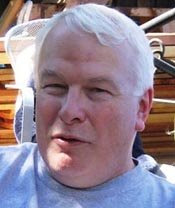Today is New Year's Day. If you are suffering from a hangover today, you aren't alone. The chief culprit is dehydration caused by the diuretic effect of ethanol, which can lead to shrinkage of brain tissue, and that causes headache. Alcohol irritates the lining of the stomach, causing queasiness. Other symptoms are caused by the toxic by-products of the liver's detoxification process. For something so common, hangover is poorly understood by the medical community, and quack remedies abound.
Hangover remedies probably evolved hand in hand with alcohol consumption. Pliny the Elder counseled Romans to eat fried canaries or raw owl's eggs. Ancient Assyrians tried to assuage their anguish by consuming a concoction of ground bird beaks and myrrh. Medieval Europeans consumed raw eels with bitter almonds. The Chinese drank green tea, which seems benign enough, but their neighbors the Mongolians ate pickled sheep's eyes. The Japanese ate pickled plums. Then there's the Prairie Oyster, introduced at the 1878 Paris World Expo: it's a raw egg (with the yolk intact), mixed with Tabasco sauce, Worcestershire sauce, salt, and pepper. Puerto Ricans took a preventative tack: they rubbed sliced lemons in their armpits before drinking; In India, they drank coconut water, and there's some merit to that, because coconut water is rich in electrolytes and it helps with the dehydration.
Then there's the "hair of the dog" approach. In the 19th century, an Italian named Bernardino Branca developed a potion called Fernet: rhubarb, aloe, peppermint oil, and opiates. As a bonus, Fernet also cured cholera, or so Branca claimed. It's still available today, minus the opiates. Some people swear by the Bloody Mary: tomato juice mixed with vodka and a variety of spices; Hemingway's variant was tomato juice and beer.
A literature review in the British Medical Journal concludes that there is no reliable way to treat or prevent hangover after over-imbibing. The Algonquin Round Table writer Robert Benchley came to a similar conclusion: "A real hangover is nothing to try out family remedies on. The only cure for a real hangover is death."
Posted via email from drben54's posterous

